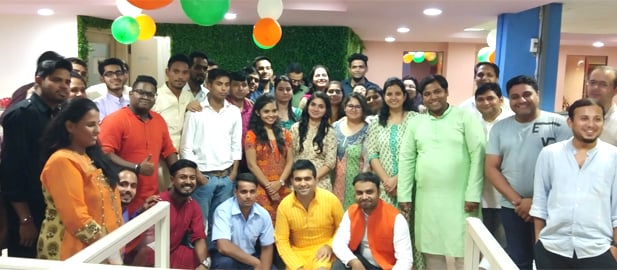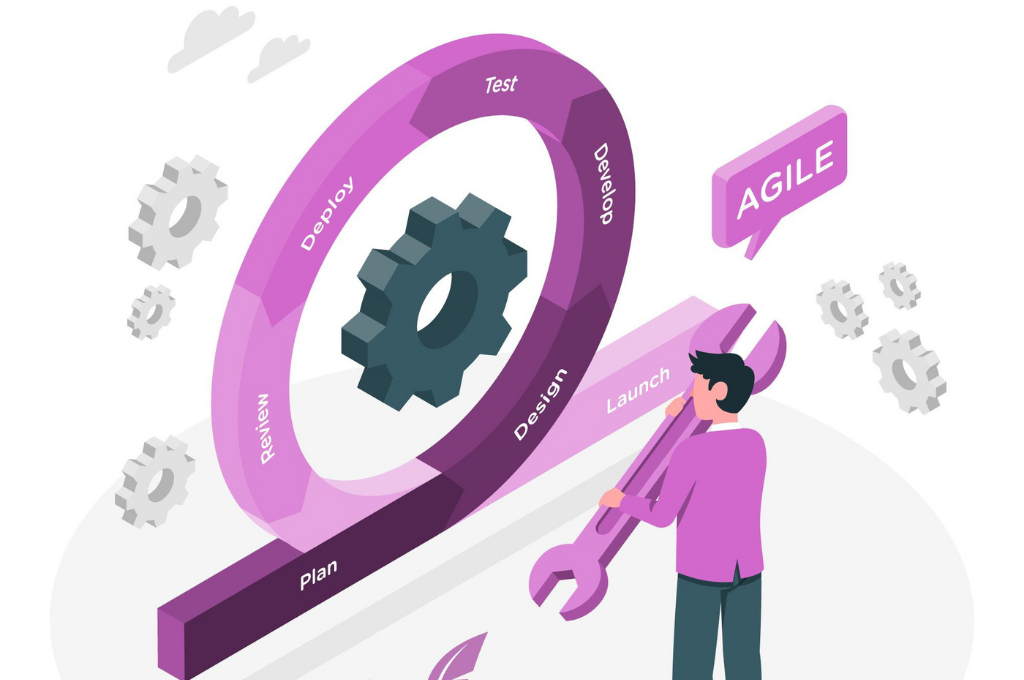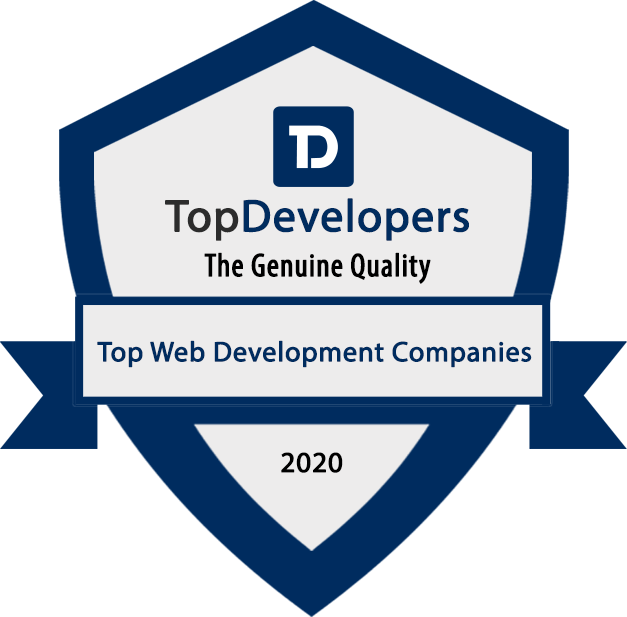The Evolving MVP Landscape: Why Choosing the Right Partner Matters
The MVP development process has undergone a significant transformation in recent years. With the integration of AI, cloud-native architectures, and user-centric design, the expectations for MVPs have escalated. Choosing a partner who understands these modern demands is crucial for the success of your product.
- Integration of Advanced Technologies: Modern MVPs often incorporate AI and machine learning to enhance user experiences and provide personalized solutions. Partners with expertise in these areas can help in creating more intelligent and adaptable products.
- Emphasis on User-Centric Design: Today's users expect intuitive and seamless experiences. A partner who prioritizes user-centric design ensures that the MVP resonates with its target audience.
- Agile and Iterative Development: The ability to adapt and iterate based on user feedback is vital. Partners employing agile methodologies can swiftly respond to changes, ensuring the MVP remains relevant.

Defining Your Core Value Proposition and Prioritizing Features
A clear value proposition is the foundation of a successful MVP. It guides feature prioritization and ensures that the product addresses the primary needs of its users.
- Utilizing Prioritization Frameworks: Frameworks like MoSCoW (Must have, Should have, Could have, Won't have) and RICE (Reach, Impact, Confidence, Effort) help in systematically determining which features to include in the MVP. These tools ensure that resources are allocated effectively, focusing on features that deliver the most value.
- Aligning Features with User Needs: Prioritizing features that directly address user pain points ensures that the MVP is both relevant and valuable. Regular user feedback can further refine feature selection.
- Avoiding Feature Creep: It's essential to resist the temptation to include too many features in the MVP. A focused approach ensures clarity and effectiveness in addressing the core problem.

Technical Expertise: Cloud-Native Development, Microservices, and AI/ML Readiness
Technical proficiency is paramount in today's MVP development. Partners should be adept in modern technologies to ensure scalability, flexibility, and innovation.
- Cloud-Native Development: Leveraging cloud-native architectures allows for scalable and resilient applications. This approach ensures that the MVP can handle varying loads and can be updated seamlessly.
- Microservices Architecture: Breaking down applications into microservices enables independent development and deployment. This modular approach enhances flexibility and allows for quicker iterations.
- AI/ML Integration: Incorporating AI and machine learning can provide predictive analytics, personalized experiences, and automation. Partners with expertise in these areas can significantly enhance the MVP's capabilities.
Agile Methodologies and Iterative Development Cycles
Adopting agile methodologies ensures that the MVP development process is flexible, collaborative, and responsive to change.
- Incremental Development: Breaking the development process into smaller, manageable chunks allows for regular assessments and adjustments. This approach ensures that the product evolves based on real-time feedback.
- Cross-Functional Teams: Agile promotes collaboration among diverse teams, ensuring that different perspectives are considered, leading to a more holistic product.
- Continuous Feedback Loops: Regular feedback sessions with stakeholders and users ensure that the product remains aligned with expectations and needs.

Robust Testing and Continuous Feedback Mechanisms
Ensuring the MVP's reliability and relevance requires rigorous testing and continuous feedback integration.
- Automated Testing: Implementing automated testing tools ensures that the product remains stable as new features are added. It also speeds up the testing process, allowing for quicker deployments.
- User Feedback Integration: Actively seeking and incorporating user feedback ensures that the product evolves in line with user expectations. This approach enhances user satisfaction and product relevance.
- Performance Monitoring: Continuous monitoring of the MVP's performance helps in identifying and addressing issues promptly, ensuring a seamless user experience.
Industry Experience and Proven Track Record
A partner's experience in your specific industry can significantly influence the MVP's success.
- Understanding Industry Nuances: Partners familiar with your industry can anticipate challenges, understand user behaviors, and provide insights that are specific to your market.
- Proven Success Stories: Reviewing a partner's past projects, case studies, and client testimonials can provide insights into their capabilities and reliability.
- Adaptability to Industry Trends: Experienced partners are more likely to be aware of and adapt to emerging trends, ensuring that your MVP remains competitive.
Effective Communication and Cultural Alignment
Clear communication and cultural compatibility are essential for a successful partnership.
- Transparent Communication Channels: Establishing clear communication protocols ensures that all stakeholders are aligned and informed throughout the development process.
- Cultural Compatibility: Shared values and work ethics between your team and the partner can lead to smoother collaborations and mutual understanding.
- Timezone Considerations: Especially in remote-first environments, overlapping working hours can facilitate real-time discussions and quicker decision-making.
Ensuring Data Security, Scalability, and Compliance
Protecting user data and ensuring the MVP's scalability are non-negotiable in today's digital age.
- Data Protection Measures: Implementing robust security protocols, including encryption and regular audits, safeguards user data against breaches.
- Scalable Architectures: Designing the MVP with scalability in mind ensures that it can handle increased user loads without compromising performance.
- Regulatory Compliance: Adhering to data protection regulations like GDPR or CCPA is crucial to avoid legal repercussions and build user trust.
Embracing Modern Trends in MVP Development (2024–2025)
Staying abreast of current trends ensures that your MVP remains relevant and competitive.
- AI Toolkits: Leveraging AI platforms can enhance functionalities like chatbots, personalization, and predictive analytics, enriching the user experience.
- Modern UI/UX Expectations: Incorporating contemporary design trends ensures that the MVP is intuitive, engaging, and aligns with user expectations.
- Rapid Prototyping: Utilizing tools that facilitate quick prototyping allows for faster iterations and more immediate user feedback integration.
Red Flags to Avoid When Selecting an MVP Partner
Being aware of potential pitfalls can save time, resources, and ensure a smoother development process.
- Lack of Transparency: Partners who are not open about their processes, costs, and challenges may be hiding critical weaknesses. A lack of visibility can result in project delays, unexpected costs, or poor-quality outcomes.
- Overpromising with No Proof: Beware of vendors who claim to deliver complex MVPs in unrealistically short timeframes without showing case studies or client references to back up their claims.
- Inflexible Contracts and Rigid Methodologies: MVPs require flexibility. If a partner sticks to rigid plans and cannot adapt to new insights or feedback, this could indicate future difficulties.
- Minimal Post-Launch Support: A reliable MVP partner should offer support beyond deployment. If they lack structured maintenance and optimization plans, your MVP may struggle in the growth phase.
- Weak Communication Practices: Delayed responses, lack of project updates, or inconsistent points of contact can severely hinder collaboration and product quality.
Practical Checklist for Evaluating MVP Partners
To help you streamline the selection process, here’s a detailed checklist to evaluate your potential MVP development partner:
- Strategic Understanding: Do they understand your business model and market? Have they articulated a clear plan to build your MVP aligned with your goals?
- Technical Capabilities: Are they skilled in modern stacks—cloud-native, microservices, AI/ML? Can they build scalable and secure MVPs?
- Portfolio & References: Have they developed MVPs in your industry before? Can they provide client testimonials and case studies?
- Agile and Iterative Processes: Do they follow agile methodologies? Can they demonstrate an iterative, feedback-driven development model?
- UX/UI Design Excellence: Is user-centric design a priority in their process? Do they have UX
Take the Next Step with Confidence
Selecting the right MVP partner in 2025 demands more than just technical capabilities—it requires a deep understanding of your business, strong communication, and a future-ready approach. The right partner will not only translate your vision into a working MVP but also empower you with the tools, technologies, and frameworks to succeed in a fast-paced, digital-first world.
With the rise of AI, user-first design, and modular cloud-native development, your MVP must be more than a prototype—it must be a foundational iteration of your future product. By leveraging this comprehensive guide, complete with emerging trends, red flags, and an actionable checklist, you’ll be well-equipped to make informed decisions and build meaningful, scalable solutions.

Explore Classic Informatics’ AI-Powered MVP Development Services
At Classic Informatics, we bring over two decades of product engineering excellence to the table. Our MVP development solutions are designed for forward-thinking startups, scale-ups, and enterprises ready to leverage emerging technologies and stay ahead of the curve.
Here’s what we offer:
- AI-Powered MVPs: Smart features driven by machine learning, NLP, and data intelligence to give your MVP a technological edge.
- Cloud-Native Solutions: Infrastructure that’s ready to scale from day one using containers, serverless, and microservices.
- Design-Led Engineering: UX/UI design that places your users at the center and delivers intuitive, delightful experiences.
- Agile Global Teams: Distributed cross-functional teams that operate in sync with your timezone and adapt to your changing needs.
- Full Lifecycle Partnership: From ideation to post-launch support and scaling, we’re with you at every step.
Let’s co-create an MVP that not only validates your idea but positions you to lead in your industry. Get in touch with us today or explore our full suite of MVP development services.





















